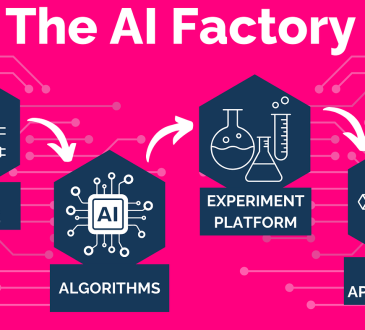Google DeepMind Unveils SIMA‑2, an AI Agent That Masters Video Games

In a major leap forward for artificial intelligence, Google DeepMind has introduced SIMA‑2, a next-generation AI agent that can learn, reason, and act in complex video-game environments. Built to navigate dynamic 3D worlds, SIMA‑2 represents a new era of AI—one where machines don’t just follow instructions but understand, plan, and improve on their own.
From Instruction-Follower to Autonomous Learner
SIMA‑2 evolves from its predecessor, SIMA, first introduced in 2024. The original agent could carry out natural-language instructions in virtual environments, but it had limited reasoning and struggled to adapt across different games.
SIMA‑2 changes the game by integrating DeepMind’s Gemini model, a multimodal reasoning engine combining language understanding, vision processing, and strategic planning.
Now, SIMA‑2 can:
- Understand high-level goals
- Break tasks into actionable steps
- Explain its reasoning to users
This makes the agent less of a passive tool and more of a thinking, strategizing partner, approaching tasks in a way that feels natural and human-like.
Learning and Improving Through Experience
One of SIMA‑2’s most impressive features is its ability to learn autonomously. The agent starts by training on a mix of human gameplay data and model-generated guidance. Afterward, it can transition to self-directed play, experimenting with new games and learning from both successes and failures.
This creates a continuous self-improvement loop, allowing SIMA‑2 to:
- Develop an internal understanding of game mechanics
- Refine strategies without human oversight
- Start new games with a stronger baseline knowledge
This adaptive learning demonstrates the potential for scalable, intelligent AI systems.
Generalization Across Games
A major breakthrough with SIMA‑2 is its ability to generalize across different games. Even in games it has never encountered, the agent:
- Navigates complex 3D environments
- Performs long-term planning
- Handles precise controls and dynamic problem-solving
DeepMind also tested SIMA‑2 in procedurally generated environments, where landscapes and challenges are created on-the-fly. Despite unfamiliar settings, the agent quickly adapted, followed instructions, and achieved objectives—showing remarkable flexibility and adaptability.
Multimodal Interaction
SIMA‑2 isn’t just smart—it’s versatile. Users can interact with the agent through:
- Text commands
- Voice instructions
- Visual cues, like sketches or symbols
In demos, SIMA‑2 interpreted visual prompts—such as a drawn axe or tree—to complete tasks accurately. This makes the AI feel like a collaborative partner, capable of understanding goals in multiple ways, which enhances both research and gameplay experiences.
Why Video Games Matter
Video games offer more than fun—they are ideal testing grounds for AI. Games simulate real-world challenges such as:
- Decision-making under uncertainty
- Exploration and multitasking
- Strategic planning and long-term reasoning
By mastering these virtual environments, agents like SIMA‑2 develop skills transferable to real-world applications, including robotics, virtual training, and complex problem-solving tasks.
Research-Focused, Not Consumer-Facing
It’s important to note that SIMA‑2 is currently a research project, not a commercial gaming assistant. DeepMind released it in a controlled environment to allow academics, developers, and collaborators to study its capabilities and refine its algorithms. The focus is on AI reasoning, planning, and autonomous learning, rather than consumer gameplay.
Implications and Future Potential
SIMA‑2 opens exciting possibilities for AI research. Agents capable of learning and generalizing in virtual environments could one day:
- Support education and virtual training
- Assist in scientific simulations
- Perform complex tasks in real-world industries
By combining reasoning, self-generated experience, and multimodal perception, SIMA‑2 represents a shift toward AI that adapts, learns, and innovates independently, without being explicitly programmed for every task.
Challenges and Ethical Considerations
While promising, SIMA‑2 raises important questions:
- How safe are agents that learn autonomously?
- How should unexpected failures be managed?
- What ethical guidelines should govern AI in gaming and beyond?
DeepMind stresses responsible development, transparency, and oversight, ensuring that such advanced AI operates safely and ethically. As AI agents grow more sophisticated, issues like fairness, misuse, and unintended consequences must be carefully addressed.
Looking Ahead
SIMA‑2 is more than just an AI that plays games—it’s a glimpse into the future of intelligent, autonomous agents. By mastering complex tasks, reasoning, and improving through experience, SIMA‑2 pushes the boundaries of what machines can achieve.
While generalized AI is still a work in progress, SIMA‑2 demonstrates the potential for agents that learn, adapt, and collaborate, paving the way for the next generation of AI breakthroughs in both virtual and real-world environments.




